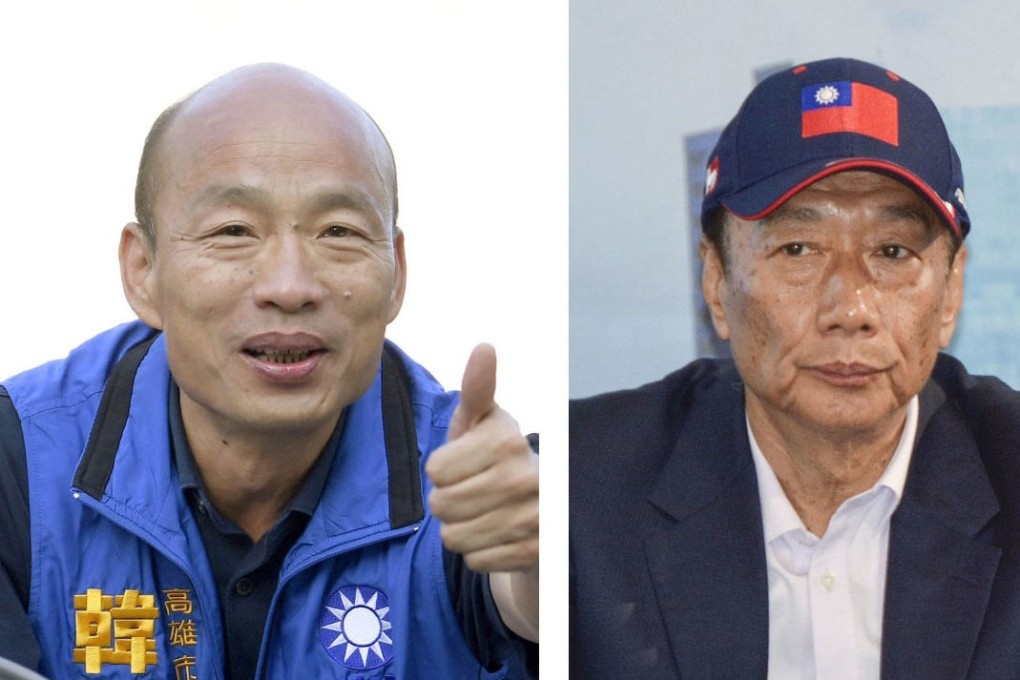Advertisement
KMT candidate Han Kuo-yu faces uphill battle in Taiwan presidential race
- Analysts say he will need to mend fences with closest rival, Foxconn founder Terry Gou, amid speculation the billionaire may run as an independent
- Kaohsiung mayor will also have to convince his constituents, and win over young voters
Reading Time:3 minutes
Why you can trust SCMP

After a convincing win in the opposition Kuomintang primaries, Taiwanese presidential candidate Han Kuo-yu faces challenges that could cost him the election if he fails to tackle them, according to analysts.
They said that the Kaohsiung mayor – who beat his closest rival, Foxconn’s billionaire founder Terry Gou Tai-ming, by 17 percentage points in the primaries – now needed to mend fences with Gou, convince his constituents and win over young voters.
Gou congratulated Han on his nomination but has yet to publicly back him for the 2020 presidential race, giving rise to speculation that the tycoon could leave the KMT and run as an independent.
Advertisement
Analysts said Han would also have to convince voters that he can improve Taiwan’s economy and safeguard the self-ruled island’s sovereignty.
The KMT announced on Monday that 62-year-old Han would be the mainland-friendly party’s candidate to challenge President Tsai Ing-wen’s re-election bid in January. Han received 44.8 per cent backing in the primaries, determined by public opinion surveys.
Advertisement
Advertisement
Select Voice
Select Speed
1.00x